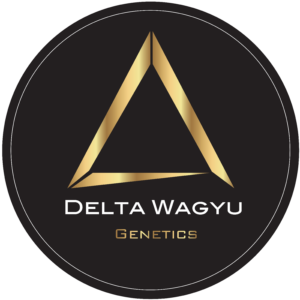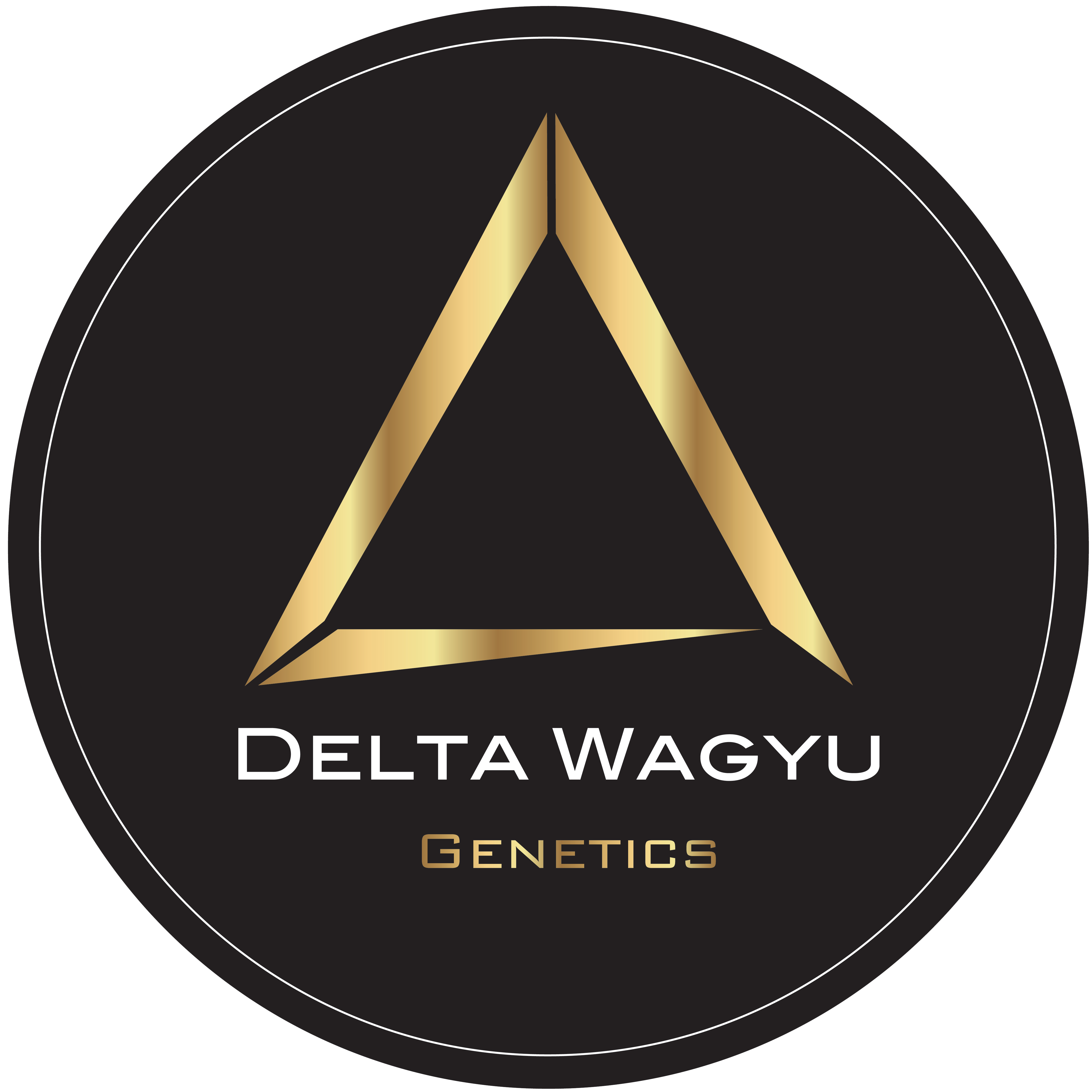Delta Genetic Principles
Delta Wagyu are leaders of wagyu genetics, excelling in cattle for commercial profitability, tailoring cattle production to both domestic and export markets. It is our philosophy to use the best genetics, keeping the genetic progress simple & cost-effective.
WE HAVE ONE GOAL
To Provide The Highest Quality Beef Genetics To Producers Worldwide.
Our global approach to performance data keeps our clients making genetic progress and competitive with the best herds. Delta Wagyu’s subsidiaries in Africa, Europe, and America allows our clients to have access to the best genetics all over the world. This is one of the strategies that keep Delta Wagyu clients making faster genetic gain than other commercial wagyu herds.
Delta wagyu’s focus on research, global partnerships, and sheer hard work are why we outpace our competitors.
At Delta Wagyu, Genetics is considered an integral part of an efficient beef system and is integrated as part of the overall farm plan. Every mating is individually planned, taking into account pedigrees, EBVs, phenotype, structure, temperament, maturity pattern, and udders. Delta wagyu is accountable to their commercial customers for supplying a quality product, with marbling scores suited their customers market.
Delta’s internal database and extensive understanding of wagyu genetics, combined with commercial progeny testing and breeding operation give Delta wagyu an extremely powerful, objective basis for making selection decisions that will benefit the long-term breeding programs for our commercial clients.
Through performance recording, Delta wagyu have developed a population of cattle that have an optimal balance between calving ease, high growth, feed conversion efficiency, fertility, maturity patterns coupled with the ability to produce high quality, high yielding and highly marbled carcasses.
Performance Information
Delta Wagyu utilise the Australian Wagyu Associations BREEDPLAN methodology as an advanced genetic evaluation system, providing a genetic explanation for a comprehensive range of traits influencing fertility, growth marbling and carcase performance.
This provides Estimated Breeding Values (EBVs), predictions of the genetic merit of individual animal and assist in the selection purchase of breeding stock. EBVs are now accepted by most beef producers as an essential tool in the breeding and marketing of seedstock.
EBVs are based on all available pedigree and performance records provided by breeders in Australia and New Zealand, along with available overseas genetic information. EBVs provide the best means for comparison of the relative genetic merit of animals across the breed for those traits included in the analysis. However visual assessments and pedigree knowledge is still necessary for those characteristics not adequately described by EBVs.
Both research and our industry experience have shown that more rapid genetic gains can be achieved in herds which make use of EBVs in selection decisions. In the calculation of EBVs all available pedigree and performance information on each animal and its relatives is combined to provide a single best estimate of an individual’s genetic merit for each of the desired traits. In conjunction with this, allowances are also made for environmental differences between properties, seasonal variability, and differences in heritability’s and genetics associations between traits.
The analyses of the wagyu pedigree and performance database to generate GROUP BREEDPLAN EBVs is conducted by the Agricultural Business Research Institute (ABRI), using software developed by the Animal Genetics and Breeding Unit, a joint institute of NSW Agriculture and the University of New England. Ongoing BREEDPLAN research and development is supported by Meat and Livestock Australia
Genetic Conditions
All breeds of cattle carry undesirable genetic traits. Fortunately, advances in technology have allowed the development in DNA tests for their management.
The genetic conditions know to wagyu are:
- Spherocytosis (B3) – an erythrocyte disorder that disrupts effecting b3 protein structure. Cattle that are homozygous develop pernicious anaemia with death usually occurring within the first 7 days after birth. In cases live to adulthood, retardation in growth is common.
- Chediak Higashi Syndrome (CHS) – CHS is a macrophage disorder resulting in compromise to the cattle’s immune system, making them unable to resist bacterial challenge. Blood is slow to coagulate so often the first indicator is unusual umbilical cord haemorrhage at parturition .Cattle with this syndrome often have an unusually pale coat colour.
- Claudin 16 Deficiency (CL16) –Also known as RTD or Renal tubular dysplasia, is a gene disorder on chromosome 1 and causes terminal kidney failure, with onset occurring any time from late adolescence. Cattle are unlikely to live more than 6 years.
- Factor XI deficiency (F11) – F11 is a plasma protein that participates in the formation of blood clots. Factor XI deficiency is an autosomal disorder that is associated with mild bleeding in Wagyu. Affected animals show prolonged bleeding time and abnormal plasma coagulation after trauma or surgical procedures such as castration or dehorning. It is also possible that Carrier x Carrier matings have increased difficulty producing viable fertilized embryos or full‐term pregnancies and are may be repeat breeders. This is generally a non-lethal recessive condition with affected animals being able to live and breed as normal.
Through using BREEDPLAN and our own genetics breeding software, Delta wagyu optimises the balance between inbreeding and genetic progress. Our unique wagyu breeding program gives clients a platform to ‘skip’ a generation and avoid close up mating’s. This greatly reduces the inbreeding rate and risk of any lethal recessive traits occurring.


